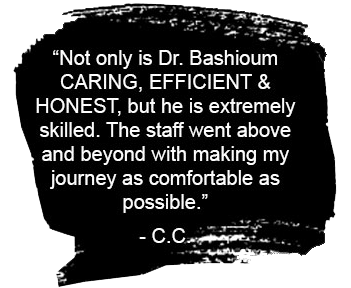Patience is a Virtue
May 13th, 2009
When my mother decided to have facial cosmetic surgery, she wanted it all. Her wish list included upper and lower eyelid surgery, face lift, forehead lift, and perioral chemical peel or dermabrasion for wrinkles around her mouth. It was my practice earlier in my career to consider doing several procedures at the same time. Generally the combined surgery could have lasted 6 hours. I suggested that we do these surgeries over a one year or two period, spaced at six month intervals, since she had a minor heart dysrrythmia. Physiologically, I though this would be easier on her. Little did I know, it would be easier on me, as well.
Her first surgery was the face lift. It was done as a singular surgery and took only two and a half hours. We used local anesthesia with sedation. She had very little pain and was ready to go out for dinner in just a few days. I noticed she was swollen but not like my other patients which would have had several surgery at once. Six months later we did her forehead lift and lower eyelid surgery. Finally, a year or so after her face lift, we did her upper eyelid surgery and upper and lower lip dermabrasion. With each surgery, she had very little pain and minimal swelling or bruising. I am still amazed that she joined me on a slow walk of about two miles on the day after her forehead lift and lower eyelid surgery!
Now I rarely do combined surgeries anymore. I have learned that narcotic pain medications can usually be eliminated when surgical procedures are done individually. Safety and reduced recovery time are enhanced with reduced operating time. Patients can usually be out and about within a couple days. It alleviates any pressure to hurry and allows me to take my time in providing the desired result, thus improving patient satisfaction. I have extended this practice to limiting procedures in all areas of surgery. Because of excellent results in my single surgery routine, I choose not to operate on more than one area of the body, except in the case of liposuction. Patience has its rewards!
Cosmetic Surgery Safety
May 11th, 2009
The most important person during cosmetic surgery is you, the patient. As with any type os surgery, elective cosmetic surgery always has risks. It is our (surgeon and patient) combined responsibility to do all we can to reduce these risks to a minimum. Safety is our top priority.
Our patients asked to complete a pre-operative history and physical. Having an impartial physician conduct the examine helps to evaluate patients for possible medical conditions before considering surgery and it is a very important step. More than once, we have chosen to reschedule surgery based on a primary care physician’s findings. Medical conditions which are not well controlled, or go undiagnosed, pose a risk of anesthetic and surgical complications.
There are a number of important items on the “to do and not to do” list before your surgery. Each surgeon usually develops their own instructions based on philosophy and experience. These instructions are based on reducing the risk of problems during and after surgery. The main elements that I worry about the most are bleeding and infection. We ask our patients not to take aspirin or any drugs which interfere with platelet function. Of course, anticoagulants cannot be used before cosmetic surgery. Patients are also instructed to shower both the night before and the morning of surgery. These simple precautions are quite effective in minimizing bleeding and infection.
All medical conditions must be under perfect control. All prescription medications must be disclosed and taken as directed. High blood pressure, if not well controlled, will result in excess bleeding during surgery and increase the risk of unwanted blood collections after surgery. Some heart medications may impact risks of anesthetic complications.
Over-the-counter medications should generally be avoided, particularly excess vitamin use. Limiting supplements to a simple multi-vitamin dosage is sufficient for a few weeks before surgery. Napropathic or herbal preparations must also be stopped, as their composition and effects are sometimes unclear. Finally, all illicit or illegal drugs must absolutely be avoided. They can lead to fatal interactions with anesthetic drugs.
Please follow all pre-op and post-operative instructions given to you by your physician. You are considered to be part of the “team” and it is our goal at my office to obtain the best result possible.
